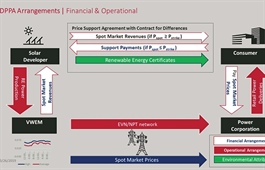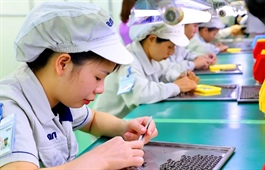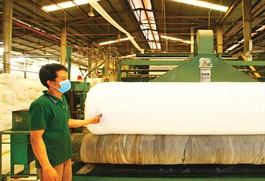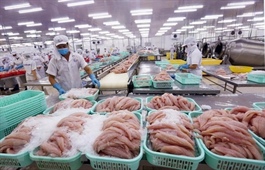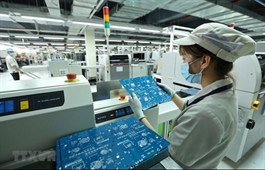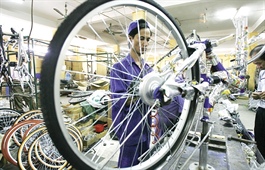Conglomerates brush off ministry requests
Conglomerates brush off ministry requests
Major foreign-invested husbandry companies CJ Group Vietnam and Emivest Feedmill Vietnam seem unwilling to provide performance information to help Vietnamese authorities build trade remedies that could reinforce the domestic husbandry industry against a deluge of cheap imports.
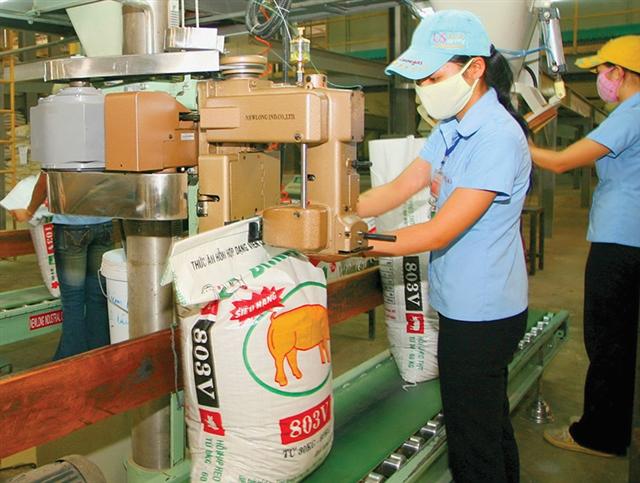
Large foreign groups are being accused of muscling out smaller ones
|
The Ministry of Industry and Trade (MoIT) has held numerous working sessions with the Ministry of Agricultural and Rural Development (MARD), some husbandry associations, and big husbandry companies over the past few years to collect information in order to prepare potential trade remedies to protect domestic companies, especially poultry producers.
“However, when the MoIT contacted them for input for a document proposing an anti-dumping investigation, numerous foreign-invested husbandry companies including South Korean conglomerate CJ Group and Emivest, which hold large market shares and looked ready to help before, gave us the cold shoulder,” said Pham Chau Giang, deputy director of the MoIT’s Trade Remedies Authority of Vietnam (TRAV).
Based on current regulations, trade remedies can be raised following the proposal of an individual or a group of agricultural producers holding 25 per cent of the market share.
Explaining their possible reluctance to cooperate, a major husbandry company told VIR that the information requested by the local authorities constitutes trade secrets, and while they are obliged to report some of this information to the tax authorities and the MARD, they are not obligated to share them with other ministries.
A representative of the local authorities told VIR that foreign-invested husbandry companies are tight-lipped about their performance because trade remedies would be against the best interests of their parent companies as they would impact business relations with partner countries.
VIR tried to contact CJ Group Vietnam and Emivest but no response was forthcoming.
In fact, due to cheap chicken imports flooding the market, domestic farmers have been complaining that they lose around VND10,000 (43 US cents) after each chicken they sell.
In the opinion of Nguyen Van Ngoc from the Animal Husbandry Association in the south-eastern region, foreign-invested giants deliberately ignore taking action to fight against imported chicken, with the intent of leaving local companies to die. “Foreign-invested companies have been earning a lot from feed or pigs recently which they can use to offset the losses from chicken, while local companies do not have the reserves to suffer for long,” he said.
Over the past five years, chicken imports have grown to massive volumes at very low pricing.
“The average price of imported chicken is low enough to confirm dumping, and a number of local husbandry companies are calling for an anti-dumping investigation, but foreign-invested ones ignore it,” Giang from TRAV said.
She added that the MoIT will strengthen monitoring domestic enterprises’ compliance with international regulations and provisions in bilateral and multilateral trade agreements. The areas of special attention will include the livestock sector that have been and are at risk of foreign countries launching investigation and applying trade remedies against Vietnamese exporters. “More, the ministry will study, review, and perfect domestic and international policies and laws related to trade remedies,” said Giang.
Trade remedies include anti-dumping action, countervailing duties, and safeguard action. These are trade policy tools that allow the government to take remedial action against imports which are causing material injury to a domestic industry.
“This should be highlighted in the context that Vietnam is integrating ever deeper into the global economy. Trade remedies are last-resort measures to protect domestic production from imports,” the TRAV representative added.
|
CJ Vina Agri opened for business in Vietnam in 2001 with the launch of a plant in the Mekong Delta province of Long An. Another plant in the northern province of Hung Yen was inaugurated five years later and in 2008, the company built its Vinh Long factory to produce fish feed. In 2015, it inaugurated the Dong Nai factory, the last before 2018’s new arrivals in Ha Nam and Binh Dinh provinces. CJ Vina Agri is also building a factory in the Mekong Delta region, bringing the total number of animal food processing plants to seven. Along with the animal feed segment, CJ Group has raised its ownership in local food businesses several times over the past few years. It bumped up the ownership rate in CJ Cau Tre from 51.6 to 71.4 per cent, and subsidiary CJ Cheiljedang bought 64.9 per cent of Minh Dat Food’s capital in 2017. In the previous year, the corporation also purchased 4.18 per cent of Vissan JSC’s stocks. Meanwhile, Emivest FeedMill Vietnam is the main feed mill producing arm of Malaysian poultry supplier and producer Leong Hup International Bhd. It operates four feed mill plants in the southern provinces of Binh Duong, Tien Giang, and Dong Nai, in addition to a northern plant in Hai Duong. The company also produced medicine and supplements in Bau Bang district of Binh Duong. |







